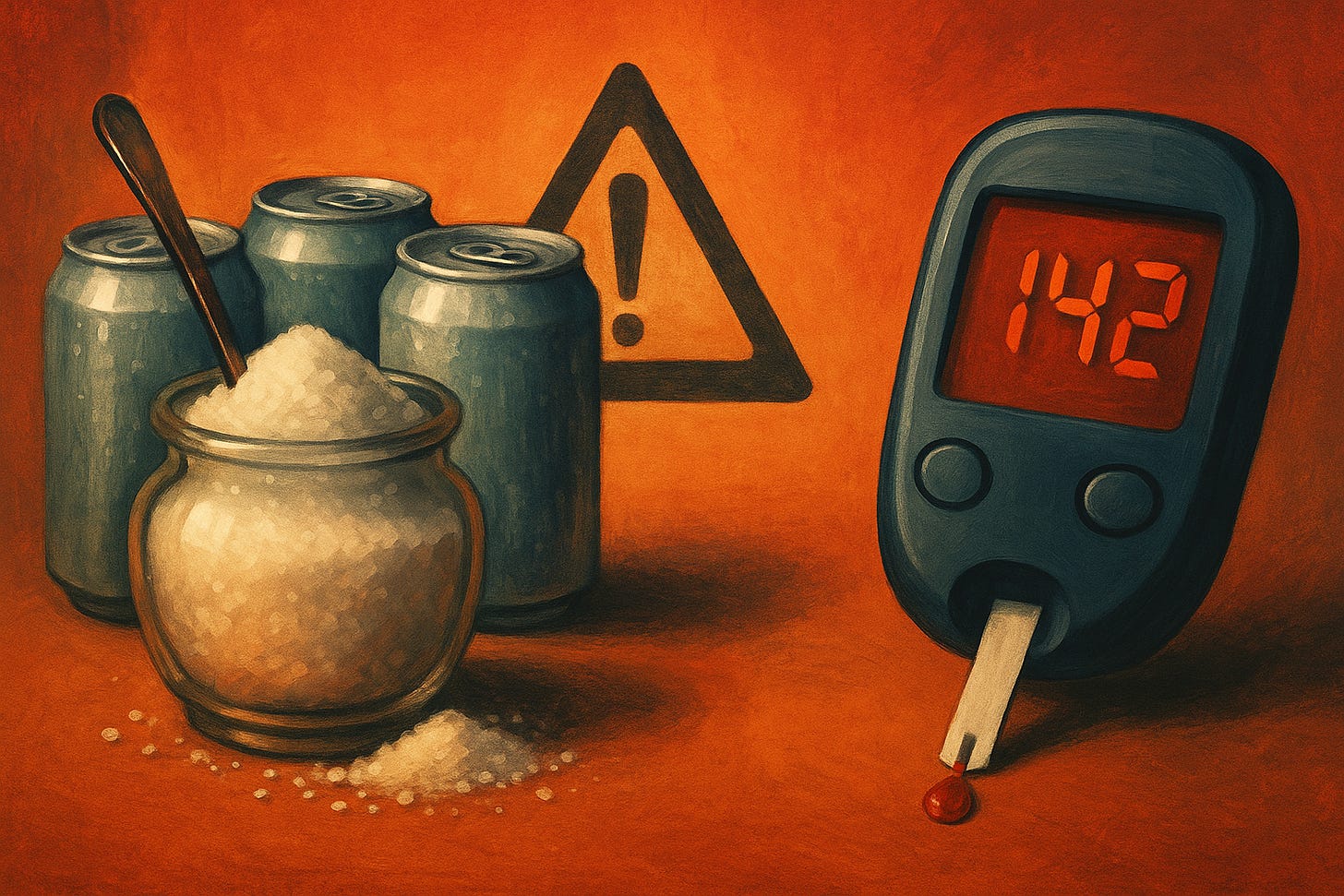Diet Drinks and Saccharin Linked to Higher Diabetes Risk
Long-term study reveals diet beverages and saccharin consumption may significantly increase diabetes incidence.
Consuming diet drinks and saccharin significantly increases diabetes risk, while other artificial sweeteners like aspartame and sucralose do not show the same effect, according to a comprehensive 30-year study.
Study Details:
The recent findings come from an analysis of data from the Coronary Artery Risk Development in Young Adults (CARDIA) study, involv…
Keep reading with a 7-day free trial
Subscribe to Just Healthcare to keep reading this post and get 7 days of free access to the full post archives.


